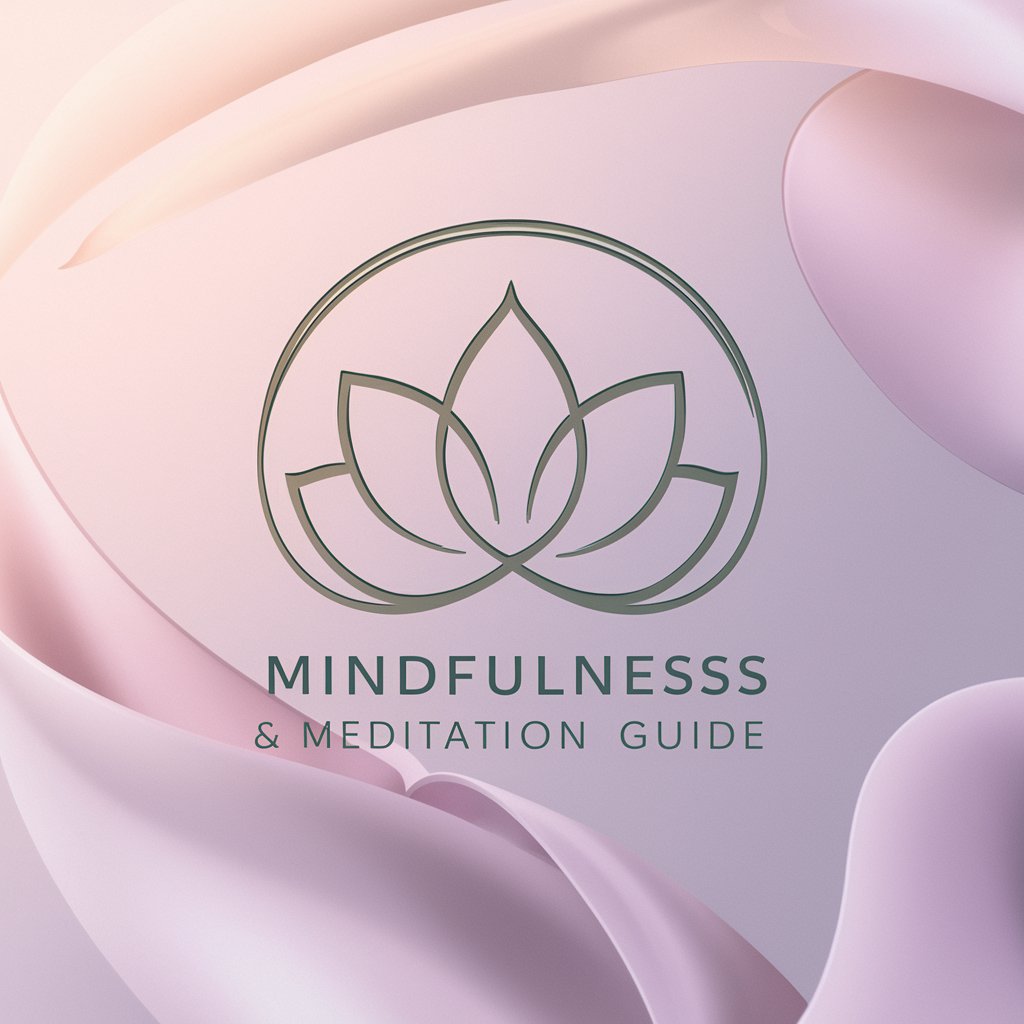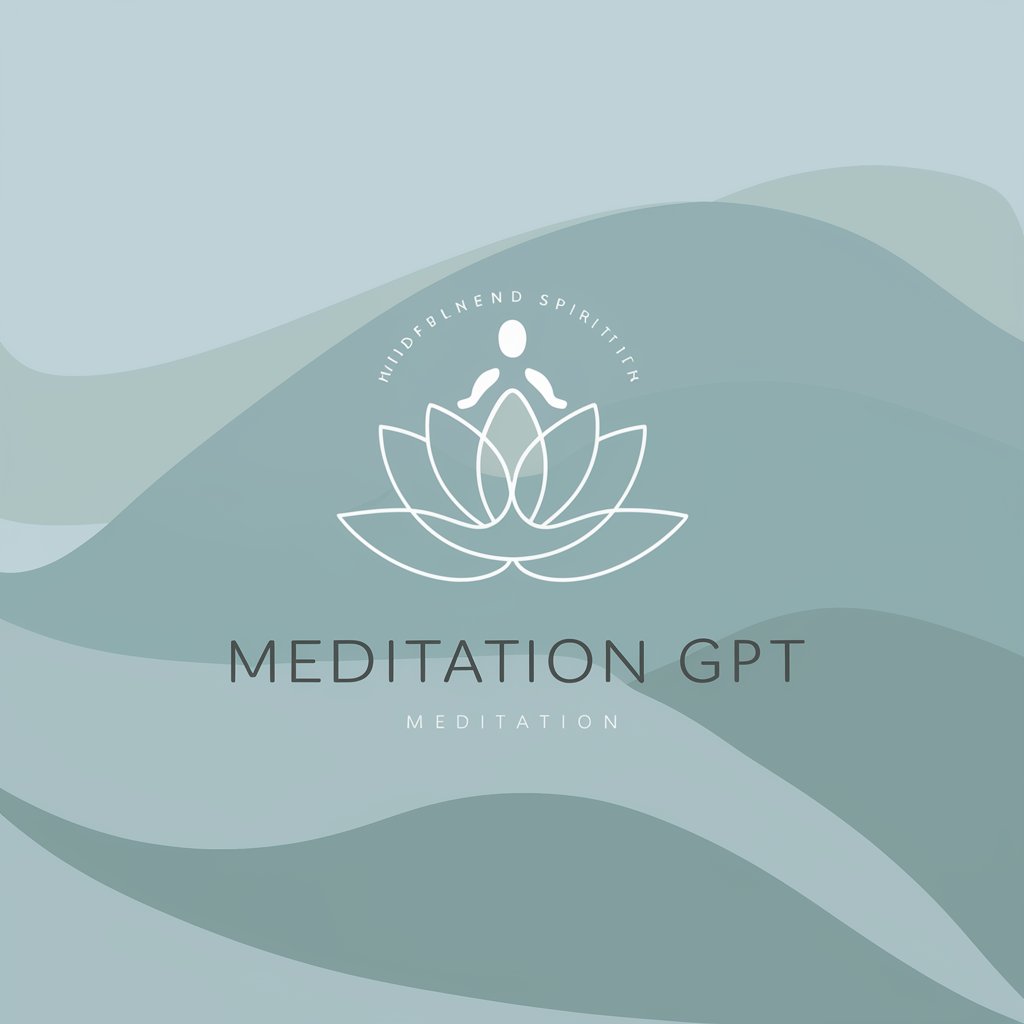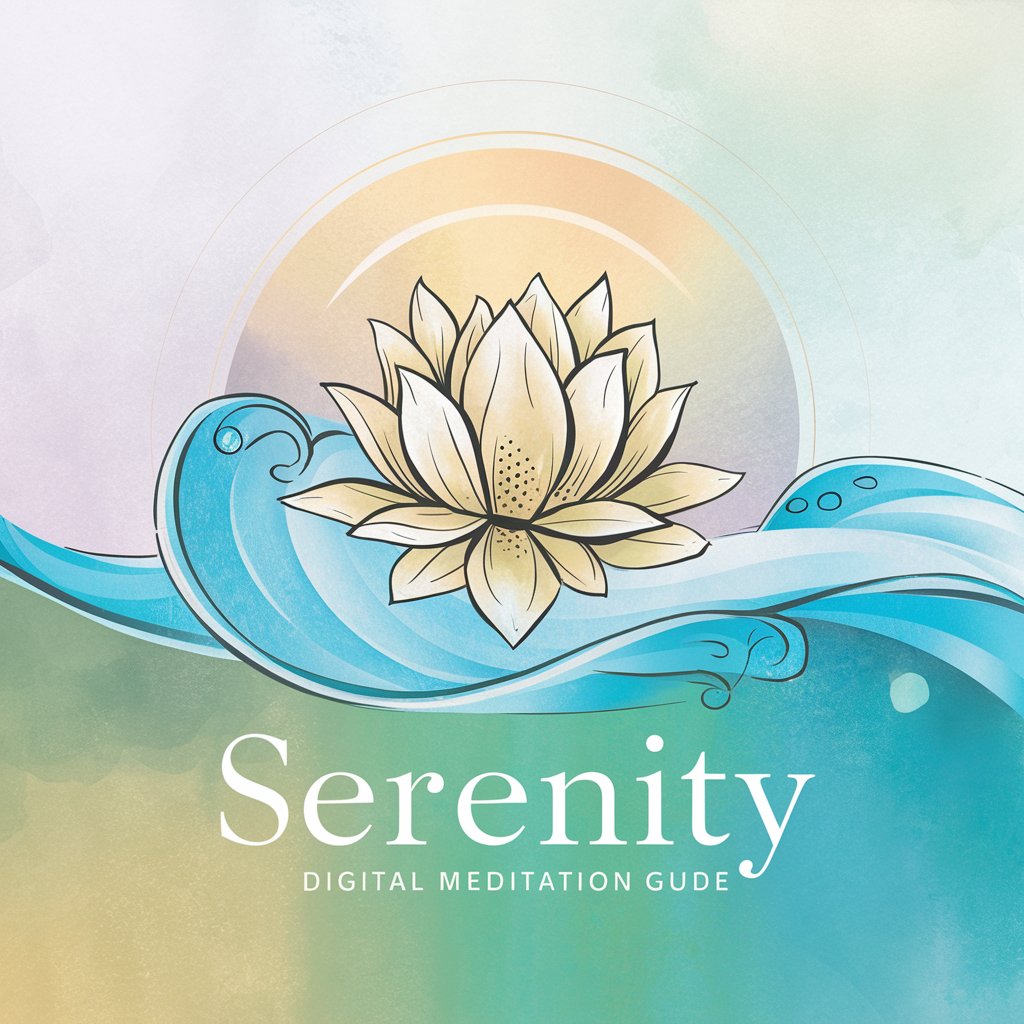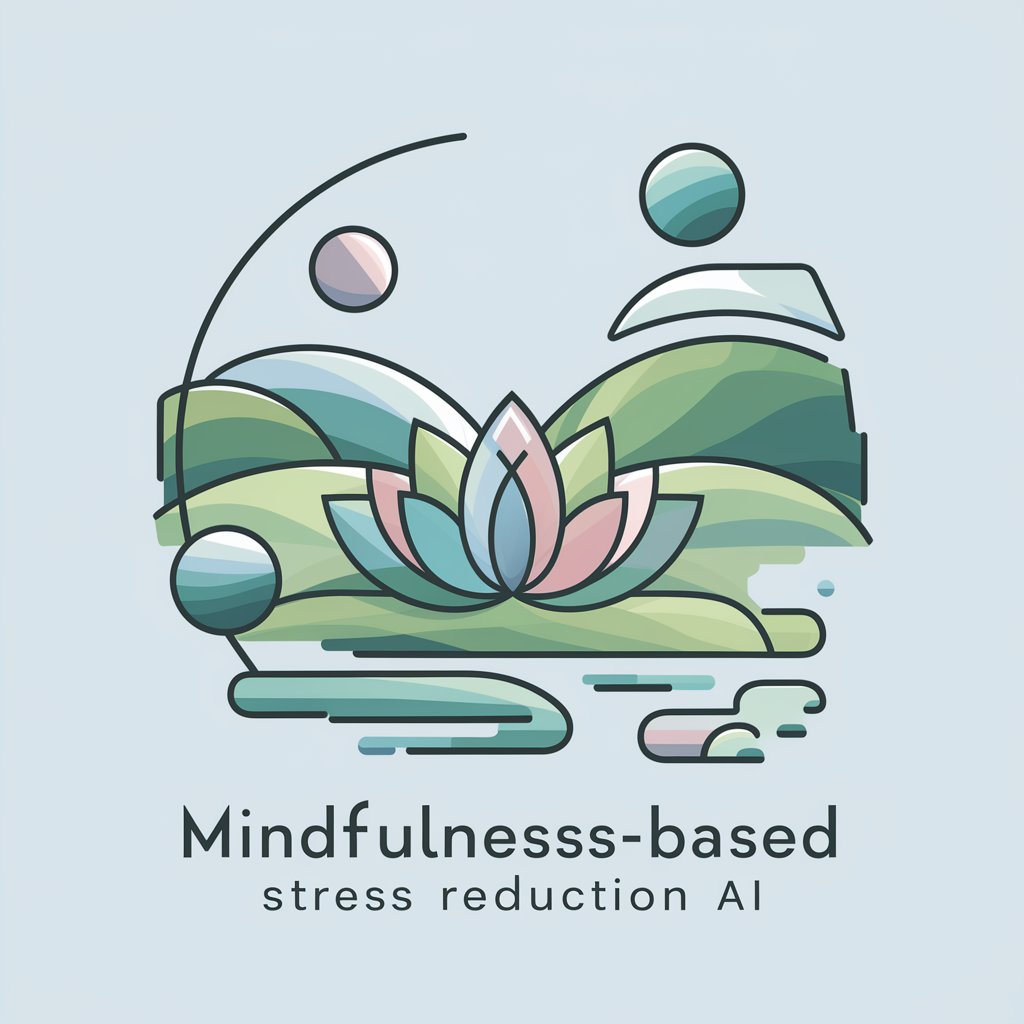
Mindfulness and Meditation - Mindfulness Meditation Guide
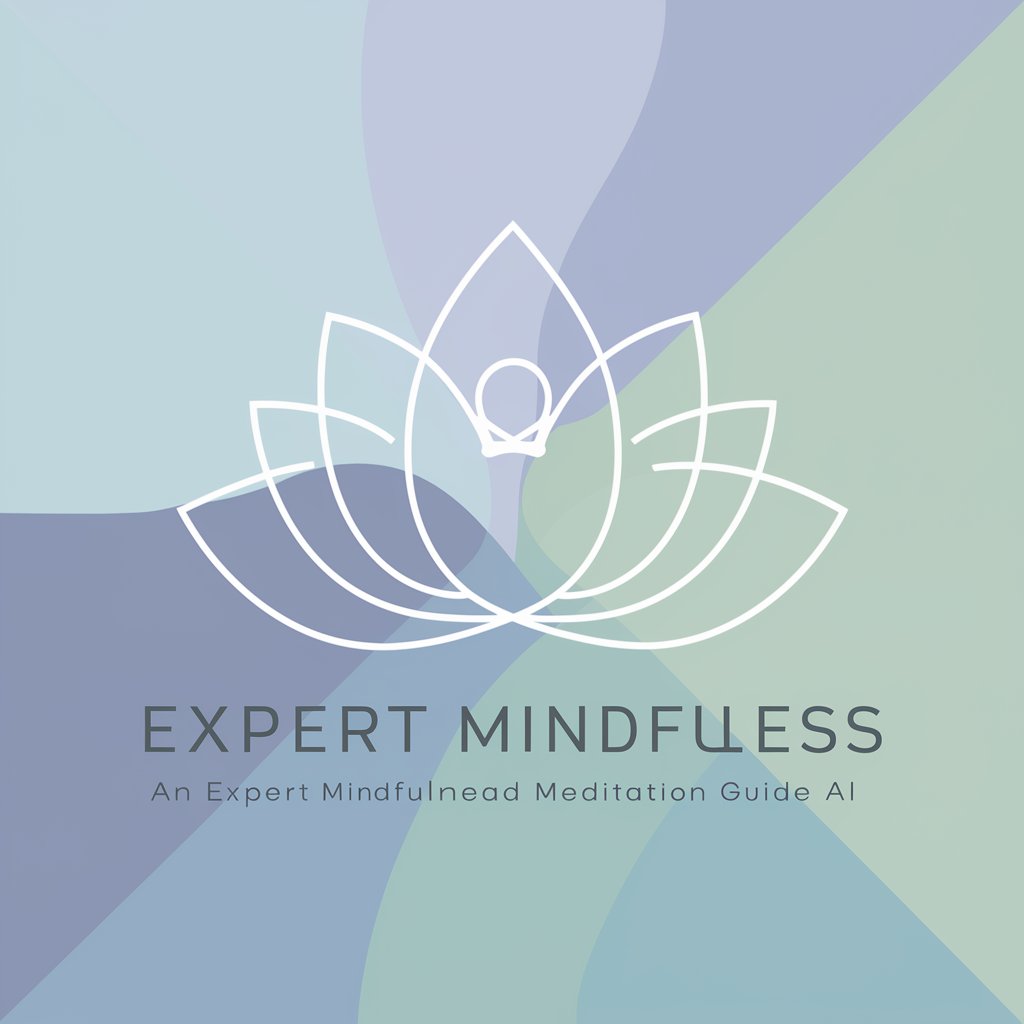
Welcome to your mindful journey towards peace and relaxation.
Enhance Well-being with AI-Powered Mindfulness
Can you guide me through a meditation for stress relief?
What are some mindfulness techniques to improve sleep?
How can I enhance my focus through meditation?
Do you have any tips for reducing anxiety with mindfulness?
Get Embed Code
Understanding Mindfulness and Meditation
Mindfulness and Meditation refer to practices that focus on cultivating a state of attentive and non-judgmental awareness of the present moment. These practices often involve techniques like focused breathing, guided imagery, and body scans to help individuals reduce stress, enhance concentration, and promote emotional health. Mindfulness aims to help practitioners acknowledge their thoughts and feelings without judgment, while meditation often involves more structured practices designed to deepen relaxation and awareness. Example scenarios include using mindfulness during a stressful workday to maintain calmness or engaging in meditation before bed to improve sleep quality. Powered by ChatGPT-4o。

Core Functions of Mindfulness and Meditation
Stress Reduction
Example
Guided breathing exercises
Scenario
A professional facing deadlines uses a 10-minute guided breathing meditation to lower stress levels and clear the mind, enhancing focus and productivity.
Enhanced Focus
Example
Concentration meditation
Scenario
A student prepares for exams by practicing concentration meditation, focusing on a single point or thought to train the mind for better attention and less distractibility during study sessions.
Improved Emotional Health
Example
Loving-kindness meditation
Scenario
An individual struggling with feelings of resentment practices loving-kindness meditation to foster compassion towards themselves and others, aiding in emotional healing and personal relationships.
Better Sleep
Example
Body scan relaxation
Scenario
Someone with insomnia practices a body scan meditation each night, focusing on relaxing each part of the body sequentially to calm the mind and ease into sleep.
Who Benefits from Mindfulness and Meditation?
Students
Students can benefit from mindfulness and meditation to manage academic stress, enhance concentration during studies, and maintain well-being throughout challenging educational periods.
Professionals
Professionals working in high-stress environments use mindfulness to manage workplace stress, maintain mental clarity, and improve decision-making capabilities.
Healthcare Providers
Healthcare providers, often facing high levels of burnout and emotional fatigue, utilize mindfulness techniques to manage stress, maintain empathy, and improve patient care quality.
Older Adults
Older adults find mindfulness and meditation helpful in managing chronic pain, enhancing cognitive function, and fostering a deeper sense of peace and well-being in later life.

Guidelines for Using Mindfulness and Meditation
Start with a Free Trial
Begin by visiting yeschat.ai to experience a free trial without the need to sign up or subscribe to ChatGPT Plus.
Choose Your Focus
Identify your primary goal for mindfulness or meditation, whether it's reducing stress, enhancing concentration, or improving emotional well-being.
Set Up Your Space
Prepare a quiet and comfortable space free from distractions. Consider using supportive cushions or mats for seated practices.
Engage Regularly
Consistency is key in mindfulness and meditation. Aim to practice daily, even if it's only for a few minutes at a time.
Reflect and Adapt
Regularly reflect on your experience and feelings post-meditation. Adjust your practice as needed to fit your evolving needs.
Try other advanced and practical GPTs
New Muslim Guide
Empowering your Islamic journey with AI.

Maternity Chic
Styling Every Step of Your Pregnancy

Senior Housing Consultant
Empowering seniors with AI-driven housing solutions.

Quiet & Comfortable: Self-Guided Guru
Discover Your Quiet Strengths
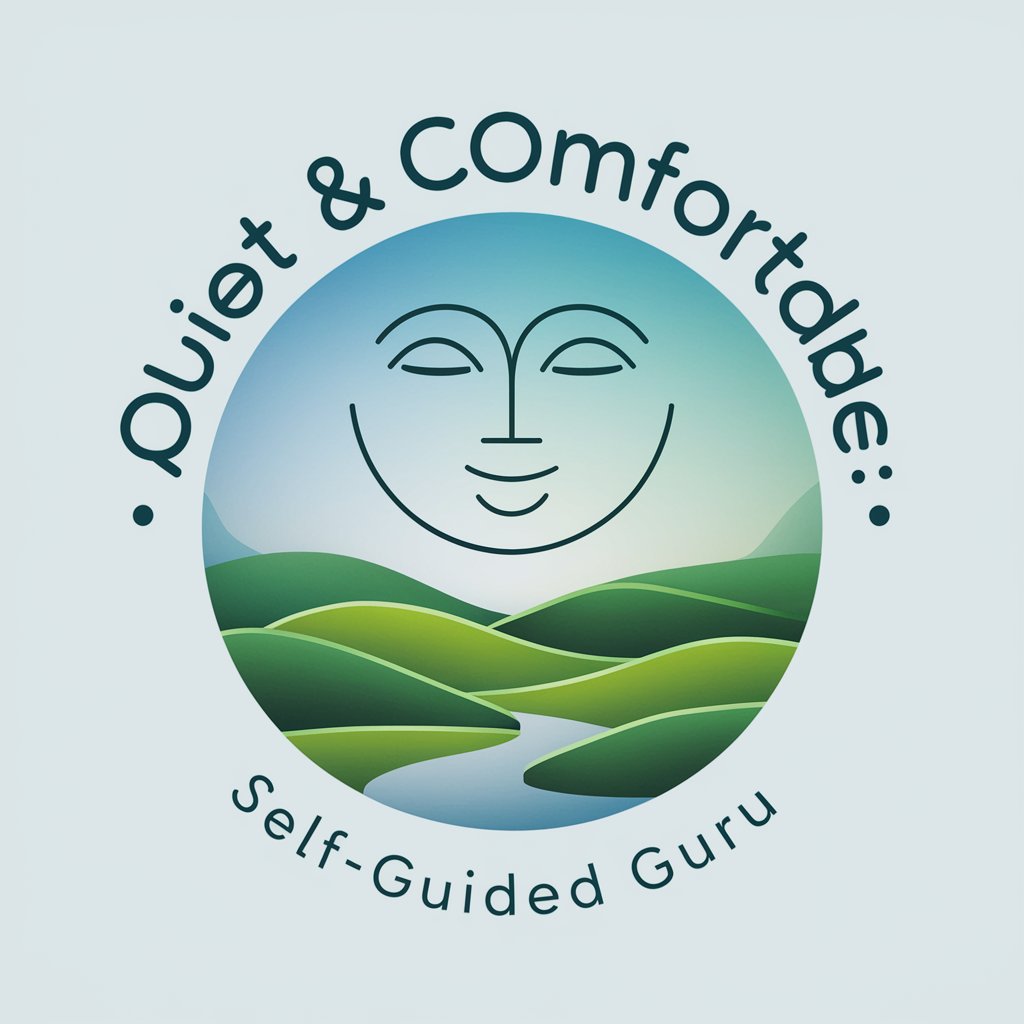
ASP.NET Core Developer
Empowering development with AI-powered ASP.NET Core insights.

.NET Core Expert
Empowering development with AI-driven .NET expertise

Don't worry be happy "tarot"
Unlock insights and guidance with AI-powered tarot readings.
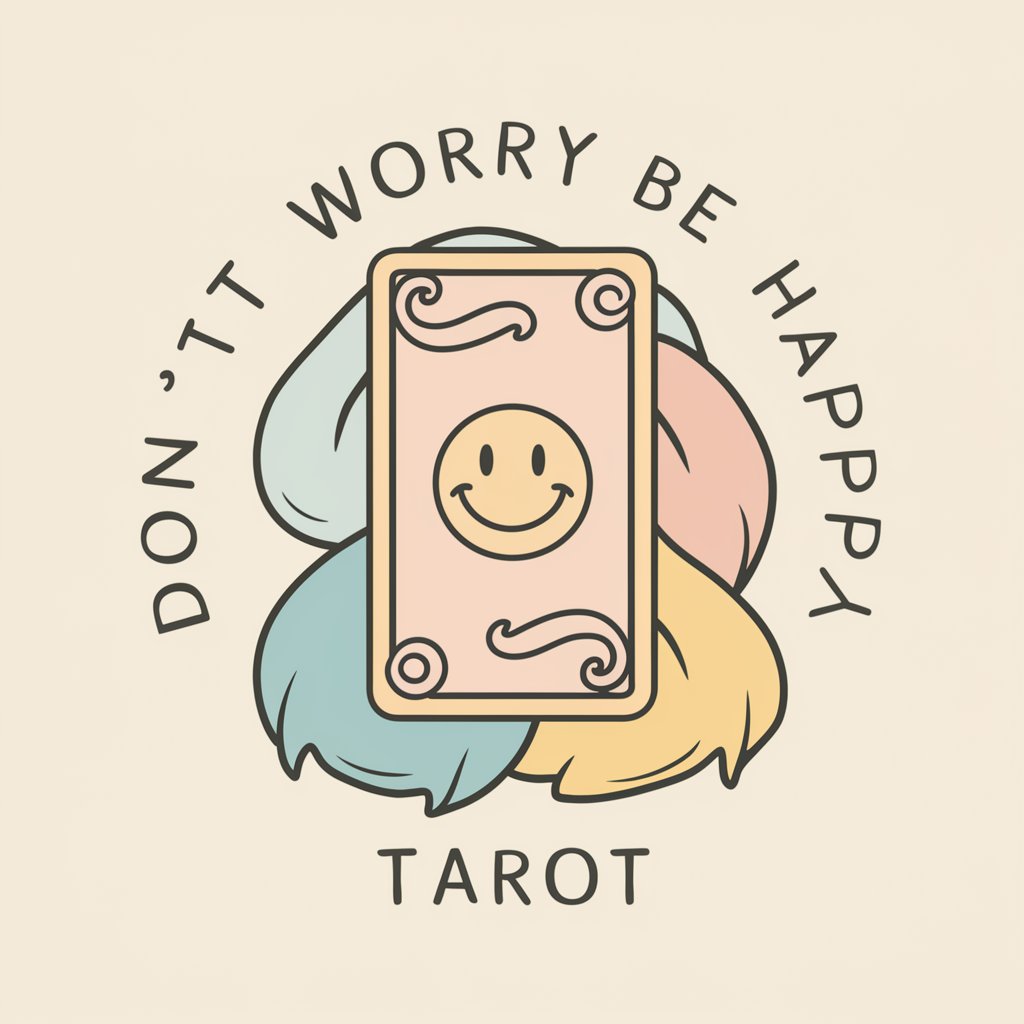
Manga Master
Unleash Your Manga Potential with AI

The Home Comfort Advisor
Smart Solutions for Your Home Comfort

EK Living Propositie Copyguide
Craft Your Space with AI-Powered Precision

Complete Biblical Greek Tutor
Master Biblical Greek with AI

Leading Authentically
Ignite Your Leadership Journey

Detailed Q&A on Mindfulness and Meditation
What are the main benefits of practicing mindfulness and meditation?
Mindfulness and meditation can significantly reduce stress, improve concentration, enhance self-awareness, and support better emotional health. These practices can also help manage symptoms of certain mental health conditions like anxiety and depression.
How long should I meditate each day?
The ideal duration can vary, but starting with 5 to 10 minutes daily is beneficial for beginners. Gradually increase the duration as you become more comfortable with the practice.
Can mindfulness and meditation help improve sleep?
Yes, these practices can enhance sleep quality by helping to lower stress levels, calm the mind, and establish conditions conducive to rest.
Are there any tools or apps recommended for beginners?
Many beginners find guided meditation apps helpful, which provide structured meditation sessions and mindfulness exercises tailored to various needs.
What's the best way to incorporate mindfulness into my daily routine?
Start by integrating short mindfulness exercises, like mindful breathing or body scans, into moments throughout your day, such as during a break or before meals.
